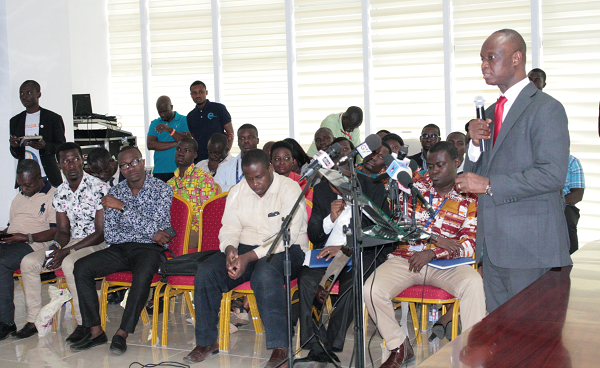The National Communication Authority (NCA) has rolled out an initiative to extend and increase data accessibility to unserved and underserved communities in the country.
The authority, through the initiative, seeks to give telecommunication companies (telcos) the opportunity to deploy 3G coverage to rural communities using the 900 megahertz (MHz) frequency band assigned for 2G services.
The move is intended to promote digital inclusion in the unserved and underserved communities in the country and increase data penetration.
The application
At a press conference to announce the initiative in Accra on Thursday, the acting Director General of NCA, Mr Joe Anokye, said the authority would permit mobile network operators to deploy the Universal Mobile Telecommunications Systems (UMTS), which is a 3G technology using their existing 2G licence in the 900MHz frequency band.
The UMTS is a third generation (3G) technology, while the 2G is a second generation of mobile network.
A number before the ‘G’ means power to send out and receive more information through the wireless network.
Due to spectrum insufficiency, the authority will allow the telcos to provide a 3G service using the 900MHz originally assigned for 2G services.
Without any charges or fees for the application for authorisation, he said a permit would be given to “unexpired term of applicants of 2G licence “ and added that the quality of service requirement would be the same as that of the existing 3G service.
Upon application by the telcos, Mr Anokye said the authority would permit the operators to provide the 3G services in the 900MHz band for specific areas.
He added that the authority would regard unserved and underserved areas outside the licence coverage requirements for 3G services, since they were the primary focus of the initiative.
{loadmodule mod_banners,Nativead1}
Promoting digital inclusion
Mr Anokye further noted that consumers could use their existing devices to access the services because most of them supported the band.
Highlighting the benefits of the initiative, Mr Anokye explained that the UMTS technology made it easier for mobile network operators to expand their data coverage with minimum costs.
“With this, we will be promoting digital inclusion in Ghana and in the process customers in the unserved and underserved areas will see the immense benefits, especially as they see improvement with their access to data and data service”, he stated.
“The initiative will also introduce choice and competition for consumers,” he said and added that it would increase data penetration, improve spectral efficiency and improve handover problems.
“Communications is essential for development, so ultimately this will go a long way to support government initiatives to bring development to the rural areas,” he stated.
He assured the public that the deployment of the UMTS-900 would not affect the current voice service running on the 2G network as the NCA would ensure that operators approved to roll out this technology would have sufficient capacity to deploy both voice and data.
He urged the telcos to take advantage of the initiative and expand the 3G services to consumers as some of them had already tested and run a pilot on it.

